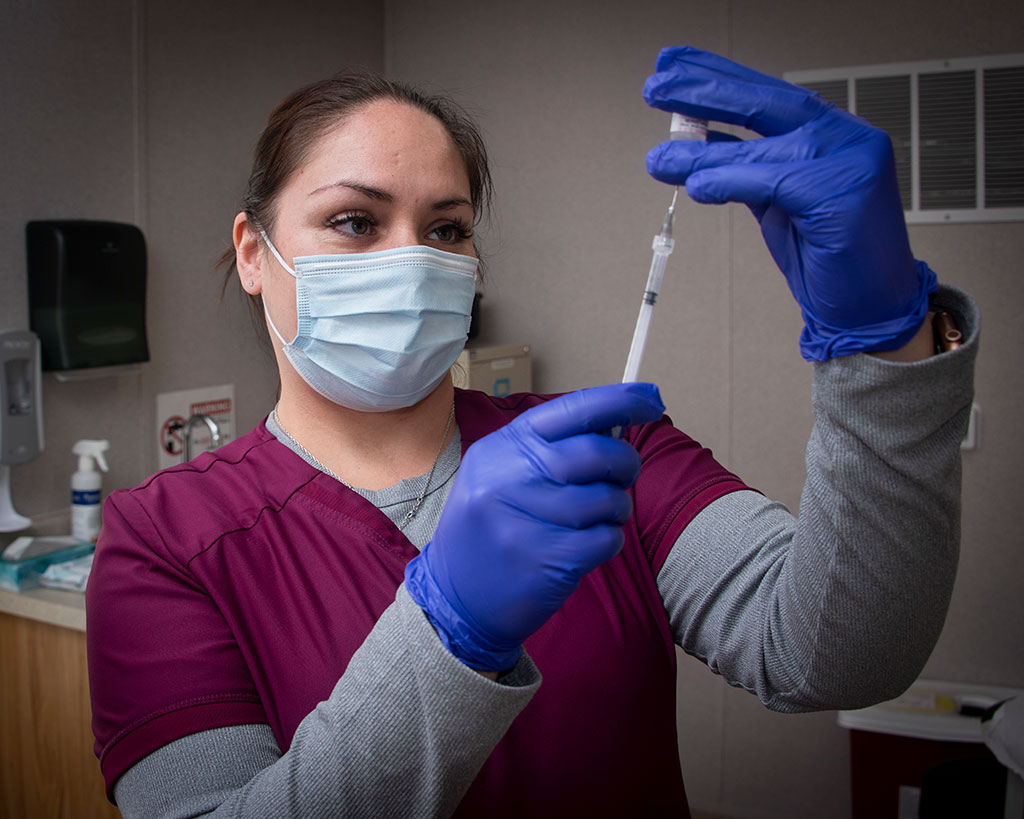Over the past few months, there have been concerns over how effective and how safe the AstraZeneca COVID-19 vaccine really is. But results from the most recent clinical trial, announced on March 22, have shown it to be 79% effective and with no serious side effects.
1. How Does It Work?
The AstraZeneca vaccine is a viral vector vaccine, much like the Johnson & Johnson COVID-19 vaccine. This type of vaccine uses a harmless adenovirus to deliver genetic instructions for a protein from SARS-CoV-2 into your cells. Your cells then make that protein, and your body will recognize the foreign protein and activate an immune response that will protect you from future infection. While the Johnson & Johnson vaccine uses a human adenovirus, the AstraZeneca vaccine uses an adenovirus that normally causes the common cold in chimpanzees. This virus can’t replicate in the human body or get you sick.
2. How Effective Is It?
On March 22, researchers announced the results of the U.S.-based AstraZeneca vaccine clinical trial. They found the vaccine to be 79% effective at preventing symptomatic COVID-19 and 100% effective at preventing severe COVID-19. They also didn’t find any serious side effects associated with the vaccine.
Earlier trials of the Astrazeneca vaccine also showed an overall efficacy of around 70%, but a manufacturing error led to some dosage mistakes during the first phase 3 trial.
Overall, the studies show that the AstraZeneca vaccine is effective at preventing disease caused by the original strain of SARS-CoV-2. However, evidence is emerging that it isn’t very good against some of the new variants of SARS-CoV-2.
In a small preprint study that has yet to be peer reviewed, researchers found that the AstraZeneca vaccine is only 22% effective at preventing mild or moderate illness caused by the variant first discovered in South Africa. As a result, the South African government has decided to no longer use the AstraZeneca vaccine and is instead relying on other ones.
Despite these weaknesses, the World Health Organization continues to recommend the AstraZeneca vaccine in countries where new variants are circulating because the experts believe the vaccine may still protect against severe disease and death.
Although this vaccine is somewhat less effective compared with mRNA-based vaccines, it is cheaper to produce and can be stored at normal refrigerator temperatures, making it a powerful tool in the global immunization effort.
3. Who’s Using the AstraZeneca Vaccine?
As of late March, the AstraZeneca COVID-19 vaccine has been given authorization in 86 countries – first by the U.K. in December and then by the European Union, Canada, India, Argentina, the Dominican Republic, El Salvador, Mexico and Morocco in January. In February, the World Health Organization granted the vaccine emergency use listing, making the vaccine available in low- and middle-income countries.
So far, over 17 million doses have been administered in the European Union and the U.K., but none yet in the U.S.
4. When Might the U.S. Authorize the Vaccine?
Although the AstraZeneca vaccine has been approved for use in many countries, the company has not yet applied for emergency use authorization in the U.S. AstraZeneca is expected to do so in March or early April, and if the Food and Drug Administration gives the vaccine the green light, vaccines could be shipping out by mid- to late April in the U.S. It is hoped that U.S. authorization will bolster global confidence in the vaccine.

5. What’s Going on with Reports of Blood Clots?
There have been recent reports of people getting certain kinds of blood clots after receiving the AstraZeneca vaccine. In response, the European Medicines Agency began investigating a possible connection. Of the 20 million recipients of the AstraZeneca vaccine, they found 25 instances of those specific blood clots – seven cases of clots in multiple vessels throughout the body and 18 cases of clots forming in people’s brains, which can result in a hemorrhage.
On March 18, the agency released a statement saying that the vaccine “is not associated with an increase in the overall risk of thrombotic events or blood clots,” but it did acknowledge that there were a “small number of cases of rare and unusual but very serious clotting disorders.” The agency said that it could not confirm nor rule out causality, so it recommended that manufacturers add a warning label to the vaccine. They also recommended that recipients be told to seek immediate medical attention if they experience symptoms associated with these types of rare clotting disorders, such as easy bruising or bleeding and persistent or severe headache, particularly more than three days after vaccination.
After considering the evidence, the European Medicines Agency, the World Health Organization and U.K. health authorities concluded that the benefits of the AstraZeneca vaccine far outweigh any risks.
ABOUT THE AUTHOR
Maureen Ferran is an Associate Professor of Biology, Rochester Institute of Technology. Ferran earned her M.S. and Ph.D in Genetics from the University of Connecticut, where she studied how viruses evade the host immune response. She then went to the Laboratory of Viral Genetics within the National Institute of Allergy and Infectious Disease at the National Institutes of Health, where she studied Human Papillomavirus. Maureen Ferran is an associate professor at the Rochester Institute of Technology in Rochester NY, where she teaches several courses including Virology, Infectious Disease: Impact on Society and Culture, and Eukaryotic Gene Regulation and Disease. Her research lab focuses on the development of viruses as a cancer therapy and the use of imaging agents to detect and target cancer.
This article is courtesy of The Conversation.


